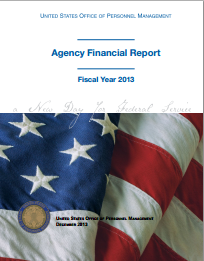- Home
- Agencies
- Department of Agriculture
- Department of Housing and Urban Development
- General Services Administration
- Department of Commerce
- Department of the Interior
- National Aeronautics and Space Administration
- Department of Defense
- Department of Justice
- National Science Foundation
- Department of Education
- Department of Labor
- Office of Personnel Management
- Department of Energy
- Department of State
- Small Business Administration
- Environmental Protection Agency
- Department of Transportation
- Social Security Administration
- Department of Health and Human Services
- Department of the Treasury
- U.S. Agency for International Development
- Department of Homeland Security
- Department of Veterans Affairs
- Goals
- Initiatives
- Programs
Primary tabs
FY 16-17: Agency Priority Goal
Human Resource Workforce Capability
Priority Goal
Goal Overview
The Federal human resources profession performs the vital role of supporting the recruitment, hiring and management of the Federal civilian workforce. The President’s Management Agenda and OPM Strategic Plan both rely critically on the ability of human resources professionals to keep abreast of innovations in talent management, evolving human resources policies, and new skills required for successful execution of Federal talent strategies. Currently, investment in development for Federal HR professionals varies across agencies in approach, content, and quality. To assure a leveling-up of HR professional development and support Government-wide HR reforms, OPM is partnering with the Chief Human Capital Officers Council to build a comprehensive curriculum of HR training and education to be delivered through the HR University (HRU). The CHCO Council is using a Community Framework to develop an agreed approach to identifying required skills, assessing the current workforce competencies to identify gaps, and targeting the development of coursework toward high priority skills. The HRU Curriculum will address all HR professional roles and technical specialty areas, and will consist of courses offered by OPM’s HR Solutions, as well as courses available from other Federal agencies. The Community Framework also includes a credentialing strategy to be developed by the CHCO Council based on benchmarking of industry best practices. A certification program will be built into the HRU Curriculum to support any future credentialing program.
The highest risk to successful execution of this goal is agencies’ willingness to pay for courses offered by HR University. Recovering the investment costs for the curriculum and HRU operations is critical to OPM’s Human Resources Solutions’ (HRS) sustainable delivery of HRU curricula and developmental resources. To mitigate this risk, HRS is collaborating closely with the CHCO Council HR Skills Gaps Executive Steering Committee to build the curriculum. Through a co-production method, HRS will ensure that courses being offered directly meet agencies’ perceived needs for HR skills development.
Strategies
OPM’s three year plan is to build the HR Curriculum that encompasses a plethora of talent development opportunities that will ensure the continuous development of a Federal HR workforce that is agile, strategic and competent. OPM plans to develop a credentialing program for significant roles within the HR occupation. To ensure OPM is able to close gaps as they occur, the agency is looking at Government-wide approaches to assessing skill and competency gaps on an ongoing basis.
Progress Update
In Q1, OPM developed course titles and content requirements based on internal technical expertise and consultation with the CHCO Council (CHCOC). The development of these course/titles and requirements is consistent with OPM’s university-like approach for the HR curriculum, which includes foundational (community college); specialties (undergraduate); and world class strategy (graduate).
In Q2, OPM worked to identify a vendor with the technical expertise required to build courses based on learning requirements. Meanwhile, OPM partnered with the CHCOC to identify additional resources Federal HR specialists will need to supplement the curriculum. Examples include:
- a competency assessment to identify skills gaps and development needs;
- developmental detail programs that will enable HR specialists to pursue experiential learning to develop competencies; and
- certification of mastery as a micro-credentialing strategy that can develop support for certification as a formal requirement for advancement in the Federal HR profession.
OPM also continued its initiative to validate technical competencies for the classification technical specialty area, as a precursor for eventual development of classification courses. Finally, OPM launched planning for the 2016 HR Virtual Conference, which will focus thematically on staffing in support of the Hiring Excellence Campaign and the HRU curriculum build-out.
In Q3, OPM assembled an integrated program team to redesign the Delegated Examining (DE) Certification Program to include a more robust and comprehensive assessment process. The IPT developed a draft framework and presented it to the CHCOC members on May 24th, 2016, and received concurrence to continue the effort. The framework will include a formal assessment, as well as proof of mastery through demonstrated experience, to ensure HR staffing professionals are knowledgeable and have proven capable to perform delegated examining successfully and in accordance with law and regulation.
Also in Q3, OPM awarded a contract for the development of the HR curriculum. The selected contractor began work on developing the objectives and curriculum recommendations for the staffing component of the curriculum. These recommendations and subsequent HR staffing courses will map to OPM learning requirements as well as those needs articulated by the CHCOC. OPM also began planning for the curriculum rollout to take place in Q4, worked with the CHCOC to formulate a strategy for assessing HR competencies in order to help agencies and HR specialists target their developmental investments and activities, continued validating technical competencies for the classification technical specialty area, and continued planning the HR Virtual Conference.
In Q4 of FY 2016, OPM presented the draft objectives and curriculum recommendations for the staffing specialists and a DE certification prototype to the CHCOC’s Executive Steering Committee for HR Skills Gap for acceptance. OPM also held an HR Virtual Conference to launch HRU staffing courses as part of the President’s Management Agenda Hiring Excellence Initiative. OPM validated technical competencies for classification, which will be used to inform the classification curriculum.
Also in Q4, the HR Closing Skills Gaps FAST Team and the Workforce Data Analytics Strategy group completed a root cause analysis for the Federal HR Specialist. This data will be used to inform OPM’s planning efforts in FY 2017 and beyond.
Next Steps
In Q1 of FY 2017, OPM will continue to develop and launch courses for the HR staffing technical area and begin piloting hiring tools and talent development approaches created during FY 2016. The development of the courses was delayed due to the delay in the acquisition services from a private sector partner.
By the end of FY 2017, OPM will have pilot tested the HR strategies deliverables from FY 2016. OPM will analyze and assess the results received from these pilot tests to determine if further design/development is needed or if the agency is ready to launch in FY 2018. OPM will complete the development of the staffing HR curriculum as well as other agreed upon action plan objectives that are directly related to the root cause analysis to ensure the agency is addressing and resolving these known root causes. In summary, the goal for FY 2017 is to complete the development of the HR staffing curriculum and begin analyzing the results from participants taking these courses to determine if mastery is achieved.
Expand All
Performance Indicators
Percent of HR specialists who complete at least one course on HRU
Percent of course participants demonstrating successful achievement/mastery of learning objectives
Contributing Programs & Other Factors
OPM will house its HR curriculum on its HR University platform. OPM’s Employees Services will provide advice on relevant laws and regulations. OPM’s Merit Systems Accountability and Compliance will provide accountability trend analysis that informs OPM’s planning for the HR professional's development.
Expand All
Strategic Goals
Strategic Goal:
SG8 Enhanced Federal Workforce Integrity
Statement:
Enhance the integrity of the federal workforce.
Strategic Objectives
Statement:
90% of Top Secret investigations completed in average of 80 days or fewer and Secret investigations completed in average of 40 days or fewer.
Percent of milestones met in FBI/OPM implementation plan to provide emerging Criminal History Information to employing government agencies implementation plan
Description:
- Defining executive branch wide quality standards for background investigations and revising tools and measures to universally assess quality in collaboration with Office of the Director of National Intelligence and the Suitability and Security Clearance Performance Accountability Council,.
- Automating front-end processes to reduce paper investigation requests in support of Background Investigations timeliness standards.
- Implementing revised Federal Investigative standards.
- Establishing and enforcing standards for information systems used for management of adjudication decisions and data.
- Developing tools to deliver appropriate emerging information to decision makers.
- Developing automated tools to support efficiency and consistency in background investigation processes.
Statement:
70% or greater of agency human capital offices evaluated demonstrate progress in improving their human capital programs after implementing OPM required and recommended actions.
80% or greater of all required actions cited in reports are addressed by agencies within prescribed timeframes.
80% or greater of Delegated Examining Units with severe problems demonstrate satisfactory level of competence within one year or cease to independently operate.
Description:
- Evaluating agencies’ human capital management programs and accountability systems for effectiveness, efficiency, and compliance with law and regulation.
- Ensuring OPM’s products and services are designed to help agencies maintain efficient, effective, and compliant human capital management programs
- Ensuring agencies take corrective actions when high-risk vulnerabilities and violations of law in human capital management programs are identified.
- Exploring options to strengthen OPM’s enforcement authorities or measures when agencies fail to meet regulatory requirements.
- Developing work products and processes that increase transparency and strengthen agency senior leader commitment and support in ensuring their human capital management programs are efficient, effective, and compliant, including
- a dashboard of human capital management targets to increase agency awareness and drive improvement efforts,
- information on effective human capital management programs, practices, and strategies Government-wide and agency-specific problematic trends, root causes, and improvement strategies.
Statement:
80% or greater of participants assess the quality of training provided by Agency Compliance and Evaluation staff at no less than 4 out of 5 points on a scale of 1-5.
Increase in the percentage of HR specialists and agency benefit officers trained and certified by HR University.
Increase in the percentage of applicable HR information systems across the Federal government are certified to align with OPM policy and guidance for equitable treatment.
Description:
- Training and certifying gency staff to carry out competitive hiring operations delegated by OPM.
- Training agency staff to conduct self-assessments of agency human capital management programs.
- Creating a certification process for agency self-assessment evaluators.
- Communicating new and existing policy and standards to agencies.
- Educating agencies about the merit system principles and prohibited personnel practices.
- Promoting and delivering low-cost, effective learning solutions for the federal community through expanded distance- and blended-learning solutions, skills immersion mini-workshops, and open enrollment course offerings through the new HR Training On Demand program.
- Training HR professionals across the Federal government through HR University (HRU) and the HR Training on Demand program and assisting HR specialists with additional policy and guidance.
- Promote training programs across all OPM platforms, including USA Learning, HR Learning Connection, OPM Learning Center, HR University, THEO, USAJOBS, and OPM.gov
Statement:
Increase in the percentage of hiring officials reporting satisfaction with quality of appointee.
Increase in the number of agencies adopting the basic SES performance appraisal system and including cross-Government requirements (e.g., Employee Viewpoint Survey results, diversity management and inclusion, effective human capital management, etc.).
Increase in the number of agencies receiving training on the Qualification Review Board requirements enabling initial SES appointments.
Description:
- Establishing policy and guidance to foster an effective enterprise approach to the diverse and inclusive recruitment, selection, appointment, performance management, compensation, recognition, and development of SES and other Senior Employees consistent with applicable law.
- Administering enterprise processes to ensure the selection, appointment, performance management, compensation, recognition, and development of SES and other Senior Employees complies with civil service laws, rules, and regulations.
- Providing an optional automated performance management system, USA Performance℠, to automate the government-wide SES PM System.
Agency Priority Goals
Statement:
Ensure that investigations achieve quality standards, while maintaining timeliness goals of the Intelligence Reform and Terrorism Prevention Act of 2004. Throughout FY 2014 and 2015, OPM will target 99 percent or more of all OPM investigations adjudicated as “quality complete” by agencies receiving closed investigations.
Description:
Beginning in FY 2013, the Director of National Intelligence (DNI) further challenged the background investigations process by revising the Intelligence Reform and Terrorism Prevention Act timeliness metrics to establish a separate standard for Top Secret investigations. As a result, the DNI shifted greater management focus on the manpower intensive workload, necessitating the creation of revised workload management tools and rules to measure and manage workload by case type.
While OPM has made significant progress on timeliness since 2004, the agency has maintained its primary focus on delivering top quality products to agencies. OPM will work with its executive branch reform partners to develop and implement Executive Branch quality standards, with a measurement tool designed for universal application during both the investigative and adjudicative processes. OPM will focus on implementing these additional initiatives while maintaining timeliness objectives. OPM will satisfy all national security standards, deliver quality products, and achieve Congressional and DNI mandated timeliness goals.
OPM is sensitive to the fiscal environment and the need for customer agencies (i.e., the employing or sponsoring agencies) to have more insight into the costs of background investigations. To this end, OPM will continue conducting business efficiency studies and maturing its cost allocation model to provide more detailed cost data and to optimize the value of OPM’s investigative products to agency adjudicators, which in turn translates into better value to taxpayers.
Strategic Objectives
Strategic Objective:
Statement:
80% or greater of participants assess the quality of training provided by Agency Compliance and Evaluation staff at no less than 4 out of 5 points on a scale of 1-5.
Increase in the percentage of HR specialists and agency benefit officers trained and certified by HR University.
Increase in the percentage of applicable HR information systems across the Federal government are certified to align with OPM policy and guidance for equitable treatment.
Description:
- Training and certifying gency staff to carry out competitive hiring operations delegated by OPM.
- Training agency staff to conduct self-assessments of agency human capital management programs.
- Creating a certification process for agency self-assessment evaluators.
- Communicating new and existing policy and standards to agencies.
- Educating agencies about the merit system principles and prohibited personnel practices.
- Promoting and delivering low-cost, effective learning solutions for the federal community through expanded distance- and blended-learning solutions, skills immersion mini-workshops, and open enrollment course offerings through the new HR Training On Demand program.
- Training HR professionals across the Federal government through HR University (HRU) and the HR Training on Demand program and assisting HR specialists with additional policy and guidance.
- Promote training programs across all OPM platforms, including USA Learning, HR Learning Connection, OPM Learning Center, HR University, THEO, USAJOBS, and OPM.gov
Agency Priority Goals
Statement: Close skills gaps in the Federal human resource workforce by developing and launching a Federal HR curriculum. By the end of FY 2016, build and launch curricula for staffing and classification. Baseline HR professionals’ proficiency levels for the Staffing specialty area competencies, and set targets for improvement. By the end of FY 2017, build and launch curricula for employee relations and labor relations; and design a certification program for existing HR University curricula.
Description: The Federal human resources profession performs the vital role of supporting the recruitment, hiring and management of the Federal civilian workforce. The President’s Management Agenda and OPM Strategic Plan both rely critically on the ability of human resources professionals to keep abreast of innovations in talent management, evolving human resources policies, and new skills required for successful execution of Federal talent strategies. Currently, investment in development for Federal HR professionals varies across agencies in approach, content, and quality. To assure a leveling-up of HR professional development and support Government-wide HR reforms, OPM is partnering with the Chief Human Capital Officers Council to build a comprehensive curriculum of HR training and education to be delivered through the HR University (HRU). The CHCO Council is using a Community Framework to develop an agreed approach to identifying required skills, assessing the current workforce competencies to identify gaps, and targeting the development of coursework toward high priority skills. The HRU Curriculum will address all HR professional roles and technical specialty areas, and will consist of courses offered by OPM’s HR Solutions, as well as courses available from other Federal agencies. The Community Framework also includes a credentialing strategy to be developed by the CHCO Council based on benchmarking of industry best practices. A certification program will be built into the HRU Curriculum to support any future credentialing program. The highest risk to successful execution of this goal is agencies’ willingness to pay for courses offered by HR University. Recovering the investment costs for the curriculum and HRU operations is critical to OPM’s Human Resources Solutions’ (HRS) sustainable delivery of HRU curricula and developmental resources. To mitigate this risk, HRS is collaborating closely with the CHCO Council HR Skills Gaps Executive Steering Committee to build the curriculum. Through a co-production method, HRS will ensure that courses being offered directly meet agencies’ perceived needs for HR skills development.













